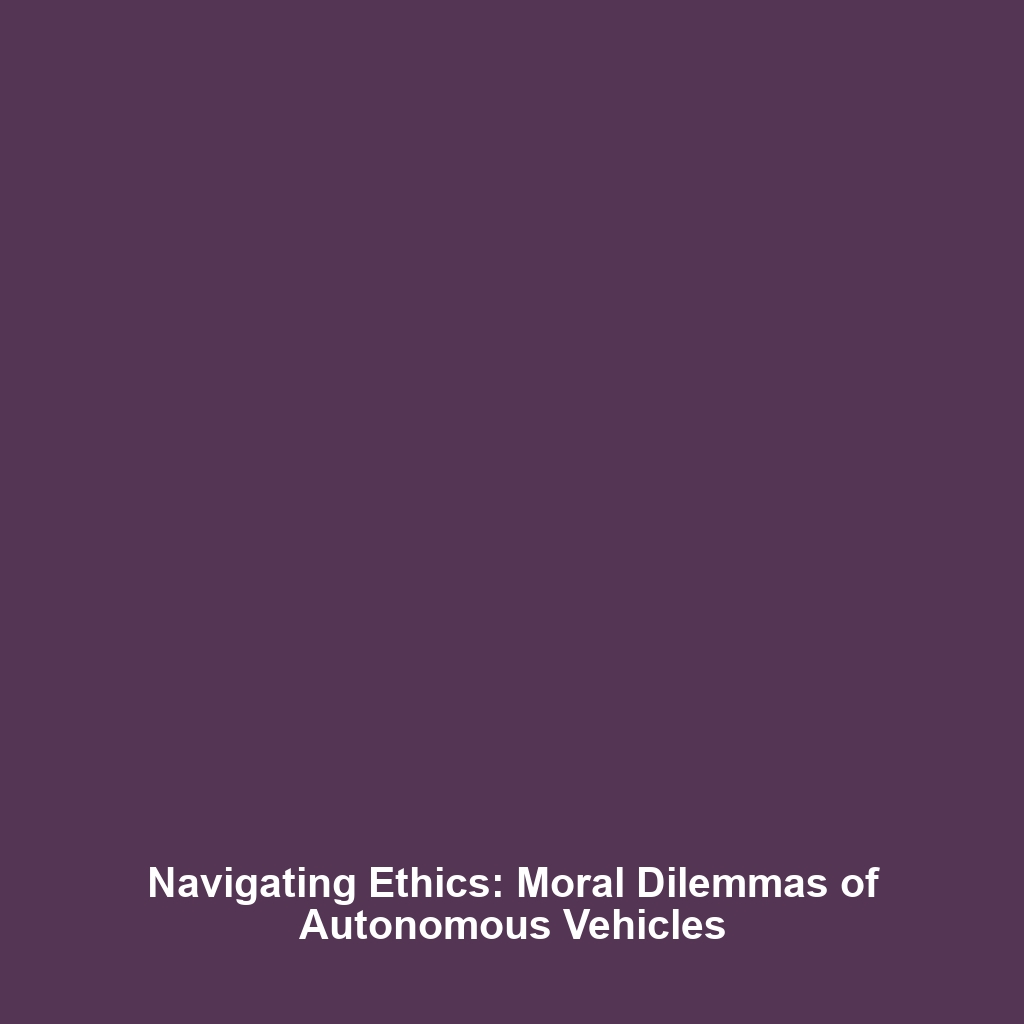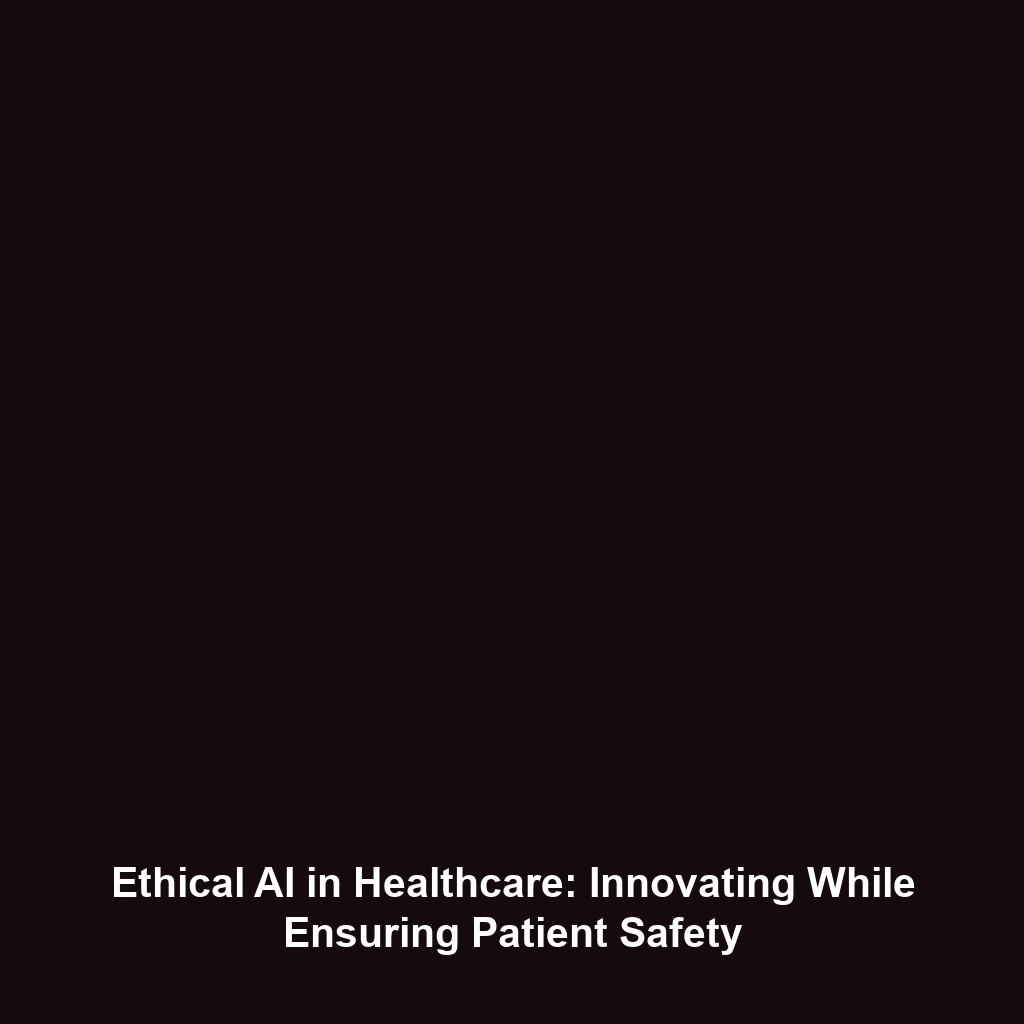Ethical Use of AI in Diagnostics: Balancing Innovation with Patient Safety
The integration of artificial intelligence (AI) into medical diagnostics represents a transformative shift in the healthcare landscape. However, the ethical use of AI in diagnostics requires a careful balance between leveraging technology for innovation and ensuring patient safety. This issue is critical as it sits at the intersection of technological advancement and ethical responsibility within the broader context of AI ethics. Understanding the implications of AI in healthcare cannot be overstated, as it directly impacts patient outcomes and societal trust in medical systems.
Key Concepts
Within AI ethics, the ethical use of AI in diagnostics encompasses several major concepts and principles, each vital for aligning technological advancements with moral considerations:
- Transparency: Ensuring that AI decision-making processes are understandable to healthcare providers and patients.
- Accountability: Establishing clear lines of accountability for AI-generated recommendations and outcomes.
- Fairness: Addressing biases in AI algorithms to prevent discrimination against certain patient groups.
- Privacy: Safeguarding patient data and ensuring compliance with regulations such as HIPAA.
These principles are essential for fostering trust in AI technologies and ensuring that innovations in diagnostics do not compromise patient safety or ethical standards.
Applications and Real-World Uses
The ethical use of AI in diagnostics has led to several notable real-world applications that enhance patient care while adhering to AI ethics:
- Radiology: AI systems analyze medical images, improving diagnostic accuracy while reducing the workload on radiologists.
- Predictive Analytics: Leveraging AI to predict patient outcomes and assist healthcare professionals in clinical decision-making.
- Telemedicine: AI tools increasingly support virtual consultations, providing diagnostics in rural or underserved areas.
These applications illustrate how AI technologies can be effectively utilized while maintaining a strong ethical framework, ensuring patient safety remains a priority.
Current Challenges
Despite its potential, ethical use of AI in diagnostics faces several challenges within the broader scope of AI ethics:
- Data Bias: AI systems may inherit biases present in training datasets, leading to skewed diagnostic results.
- Regulatory Compliance: Varying regulations across regions complicate the implementation of AI technologies in diagnostics.
- Healthcare Disparities: Unequal access to AI technologies may exacerbate existing disparities in healthcare.
Addressing these challenges is essential to developing robust AI systems that can be trusted in medical settings.
Future Research and Innovations
Looking ahead, research into the ethical use of AI in diagnostics is poised to advance significantly, with several key areas promising to impact AI ethics:
- Explainable AI: Development of methods that enhance the interpretability of AI models used in diagnostics.
- Personalized Medicine: Innovations that leverage AI to provide culturally sensitive and tailored treatment recommendations.
- Real-time Monitoring: Implementing AI for continuous patient monitoring, enhancing early detection and intervention capabilities.
These breakthroughs will further integrate ethical considerations into the fabric of AI in healthcare, ensuring that technology enhances rather than undermines patient welfare.
Conclusion
The ethical use of AI in diagnostics represents a crucial balance between advancing medical technology and ensuring patient safety. As we navigate the complexities of integrating AI in healthcare, it is imperative to uphold ethical standards that prioritize patient welfare. Continued discourse and research in this field are vital for fostering trust and advancing AI ethics.
For further reading on the intersection of AI and healthcare ethics, visit our section on AI Ethics Overview and explore how innovations are shaping the future of medical diagnostics.

